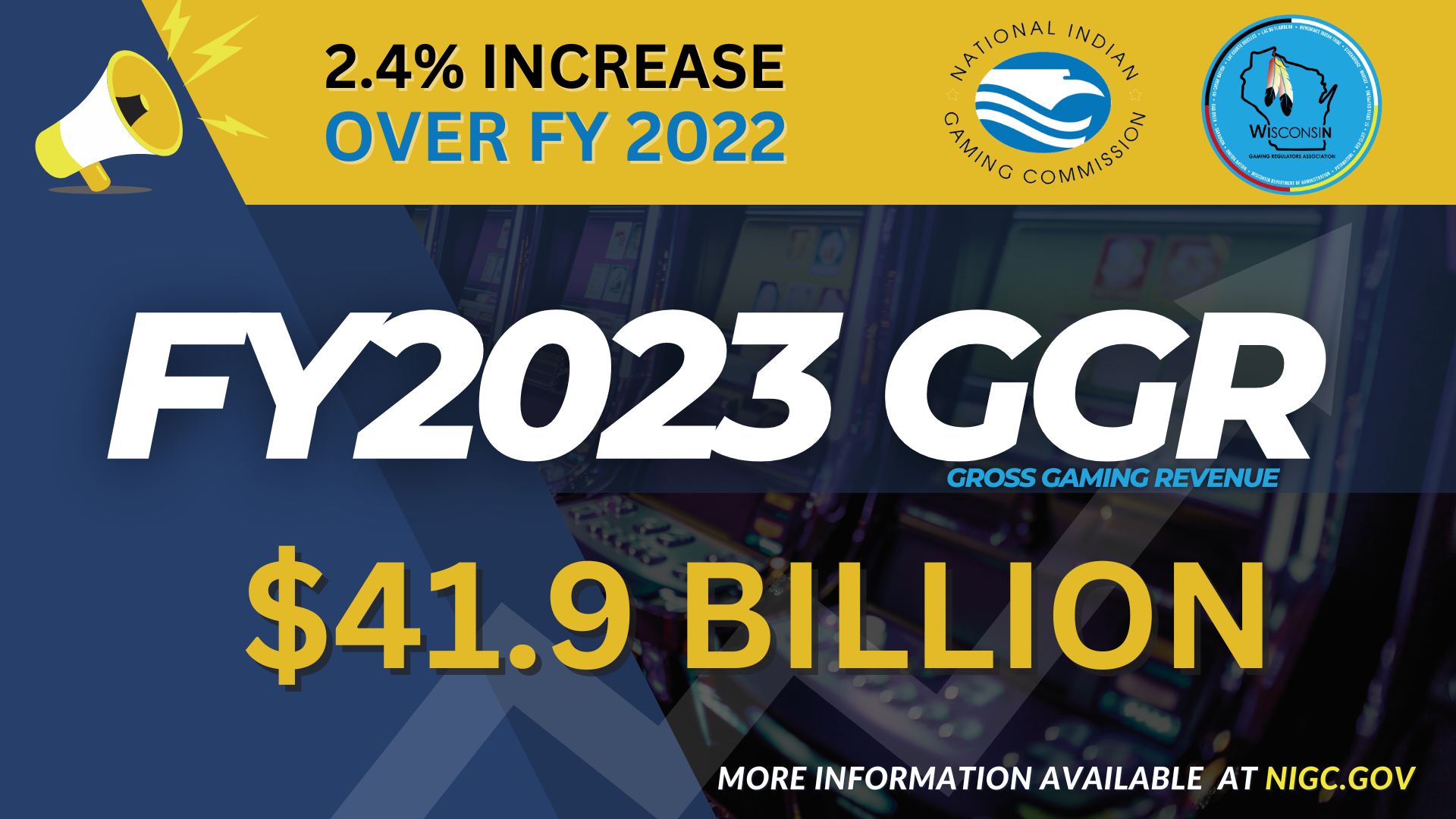
- Details
- By Native News Online Staff
The National Indian Gaming Commission (NIGC) announced this afternoon that tribal gaming revenue reached a record high of $41.9 billion in fiscal 2023.
The record revenues in fiscal ‘23 represent a 2.4% increase — roughly a $1 billion — over the $40.9 billion in tribal gaming revenue reported in fiscal 2022. The revenue growth reflects the viability of tribal gaming operations, as tribal gaming continues to adapt to technological advances and changes in consumer preferences, according to an NIGC news release issued this afternoon.
Sharon M. Avery, acting chairwoman of the NIGC, and Vice Chair Jeannie Hovland made the announcement at the Wisconsin Gaming Regulators Association Summer Conference in Green Bay, Wis. The NIGC is a federal agency established in 1988 under the Indian Gaming Regulatory Act (IGRA) to regulate and support tribal gaming.
“These results demonstrate the effectiveness of a strong regulatory framework combined with the diversity of tribal gaming operations,” Avery said in a statement. “Tribal leadership and operators have consistently shown their ability to innovate and adapt, ensuring tribal gaming remains a cornerstone of economic sustainability in Indian Country.”
In a statement, Hovland commended tribal regulators, operators and leaders for “navigating a competitive market underscores the enduring strength of tribal sovereignty and the ongoing benefits of gaming expertise for tribal nations, as envisioned by IGRA.”
“The progress really speaks to the work ethic that exists in Indian Country,” Ernie Stevens, Jr., chairman of the nonprofit Indian Gaming Association said on Thursday afternoon. “It goes from tribal leaders, Indian gaming regulators to the frontline casino employees at our facilities. They work hard every day to ensure they provide the best possible hospitality in the casinos and resorts’ restaurants and rooms.”
According to the NIGC's 2023 Annual Report, this continued growth reflects the industry's capacity to embrace technological advancements and shifting consumer preferences. Tribal operations are implementing new offerings alongside the established integrity and compliance practices that have been a hallmark of tribal gaming regulation for over three decades.
The report provides detailed information on the performance of each NIGC region and highlights the remarkable growth of tribal gaming over the past two decades. Since 2004, overall tribal gaming revenues have more than doubled, rising every year save for 2020 during the pandemic. While some have predicted a slowdown in the industry, IGA's Stevens remains optimistic about the future of tribal gaming, in part because of the important role it plays funding services for tribal citizens.
“I like to think we’ve only just begun," Stevens said. “We know it’s our responsibility to prepare for the next seven generations.”
More Stories Like This
Native News Weekly (August 25, 2024): D.C. BriefsNative News Weekly (March 1, 2026): D.C. Briefs
Scope Narrowed, Report Withheld: Questions Mount Over Michigan Boarding School Study
Zuni Youth Enrichment Project Announces Family Engagement Night and Spring Break Youth Programming
Next on Native Bidaské: Leonard Peltier Reflects on His First Year After Prison
Help us defend tribal sovereignty.
At Native News Online, our mission is rooted in telling the stories that strengthen sovereignty and uplift Indigenous voices — not just at year’s end, but every single day.
Because of your generosity last year, we were able to keep our reporters on the ground in tribal communities, at national gatherings and in the halls of Congress — covering the issues that matter most to Indian Country: sovereignty, culture, education, health and economic opportunity.
That support sustained us through a tough year in 2025. Now, as we look to the year ahead, we need your help right now to ensure warrior journalism remains strong — reporting that defends tribal sovereignty, amplifies Native truth, and holds power accountable.
 The stakes couldn't be higher. Your support keeps Native voices heard, Native stories told and Native sovereignty defended.
The stakes couldn't be higher. Your support keeps Native voices heard, Native stories told and Native sovereignty defended.
Stand with Warrior Journalism today.
Levi Rickert (Potawatomi), Editor & Publisher

